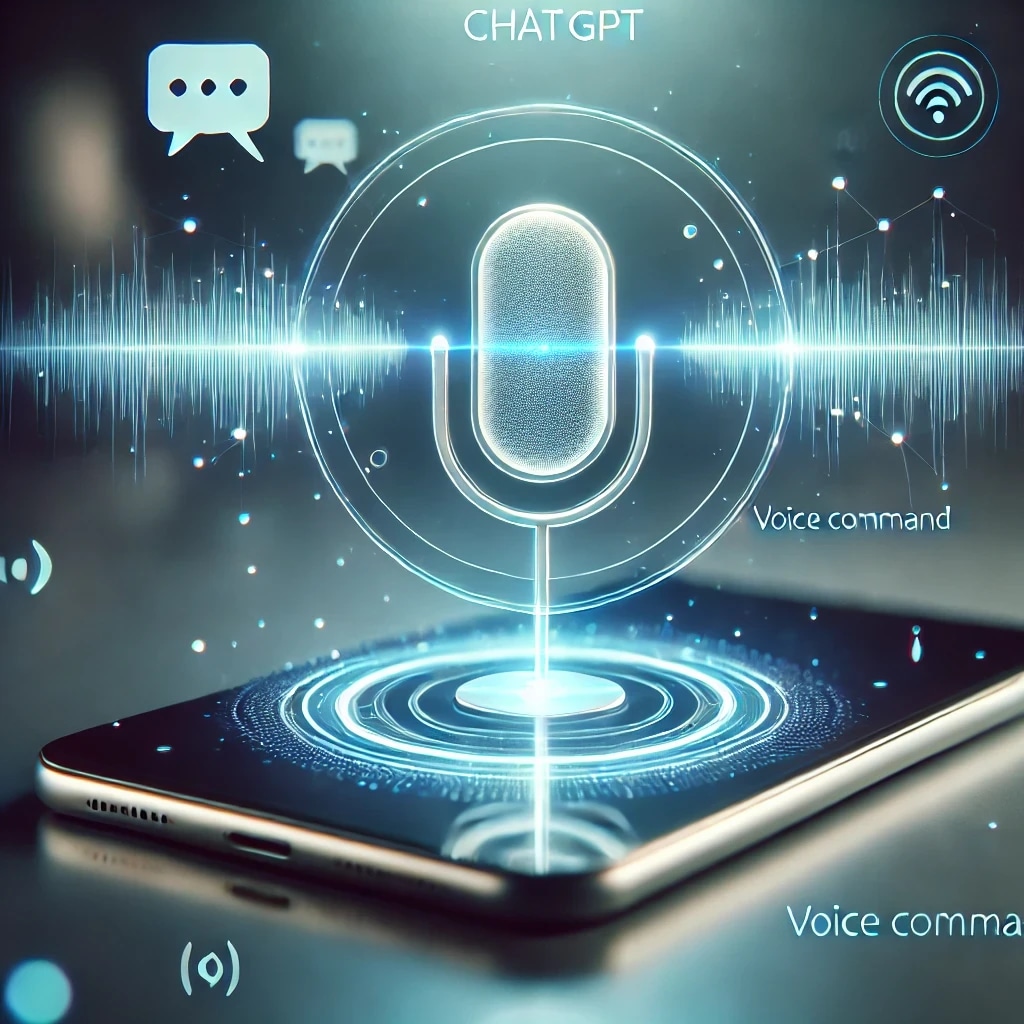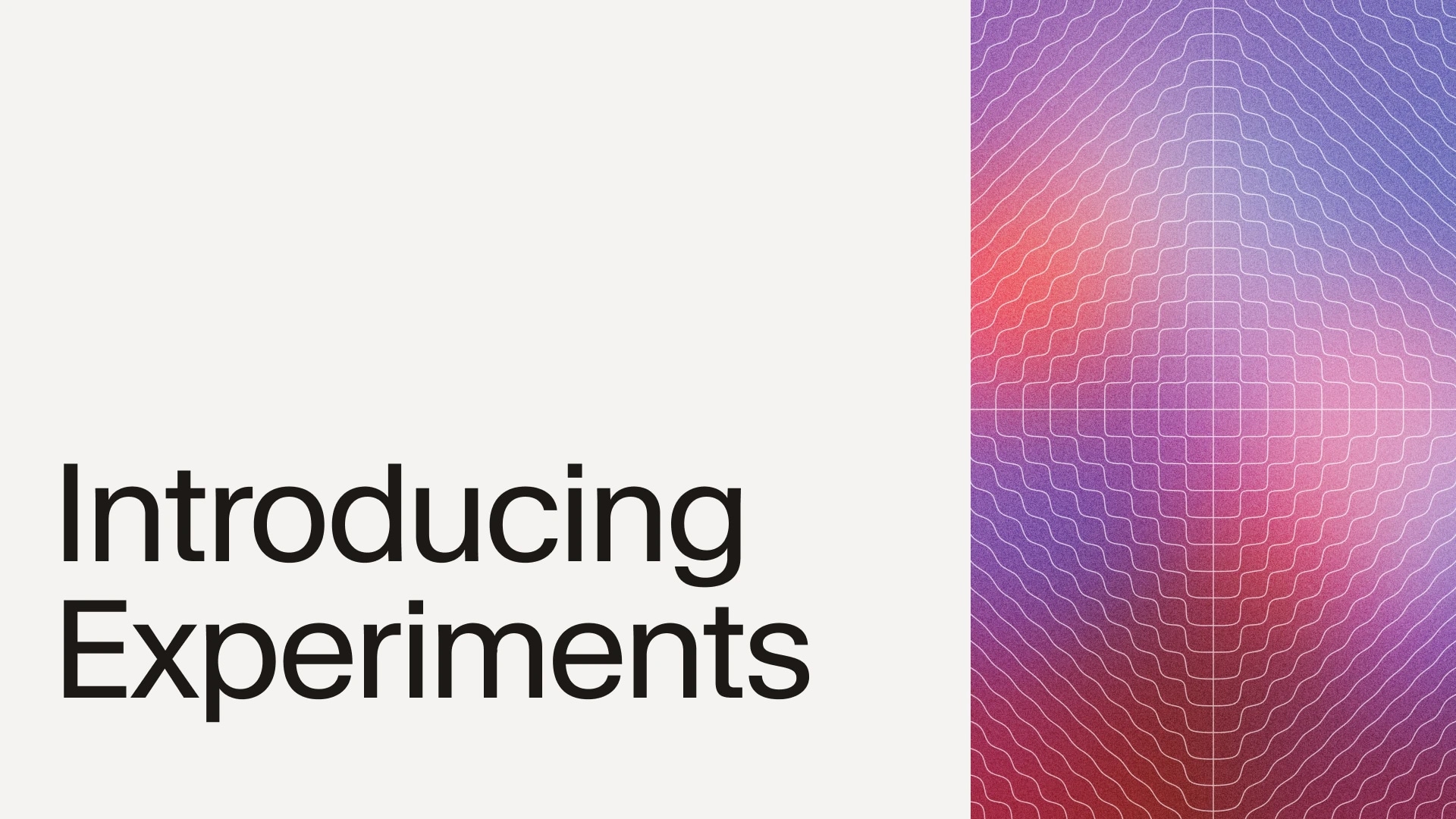
Głos OpenAI: używaj obrazów i poleceń głosowych w ChatGPT
Rozmawiaj z ChatGPT używając własnego głosu

Zastanawiałeś się kiedyś nad możliwością rozmowy z ChatGPT używając własnego głosu lub dzielenia się z nim obrazami? Wygląda na to, że twoje wizjonerskie marzenia są bliskie realizacji.
Przełomowe osiągnięcia OpenAI wprowadzają nową erę, gdzie głos i obrazy łączą się, umożliwiając ChatGPT reagowanie nie tylko na twoje wpisy, ale także na wypowiedziane słowa i udostępnione obrazy.
Wyobraź sobie, że spacerujesz obok architektonicznego cudu i wdajesz się w ożywioną rozmowę o jego historii lub organizujesz kulinarną dyskusję zainspirowaną zdjęciem wnętrza twojej lodówki.
Dzięki integracji nowoczesnego modelu zamiana tekstu na mowę interakcje z ChatGPT przekształcają się z prostych rozmów w wciągające dialogi. Przekracza to tradycyjne zapytania, oferując platformę do płynnych rozmów, czy to dla bajki na dobranoc, czy rozwiązania kulinarnego dylematu.
To początek ery, gdzie głos, wizja i wirtualna inteligencja łączą się bezproblemowo.
Więc, czy możesz rozmawiać z ChatGPT?
Tak, możesz. Czytaj dalej, aby dowiedzieć się jak.
Podsumowanie artykułu
- Czym jest OpenAI voice?
- Wszystko, co możesz zrobić z OpenAI voice
- Ograniczenia OpenAI voice
- Generatywne AI głosowe
Czym jest OpenAI voice?
OpenAI Voice to nowoczesna technologia, która sprawia, że rozmowy oparte na AI brzmią bardziej ludzko. Znaczący element jej sukcesu to model Whisper.
Whisper to system automatycznego rozpoznawania mowy, który został przeszkolony na ogromnej ilości danych — około 680 000 godzin wielojęzycznych treści z internetu.
To obszerne szkolenie pozwala mu rozumieć szeroki zakres akcentów, dostosowywać się do hałasów w tle i rozumieć język techniczny. System potrafi także tłumaczyć różne języki na angielski.
Działanie Whisper jest dość proste. Gdy otrzymuje dane audio, dzieli je na 30-sekundowe segmenty. Te segmenty są następnie przekształcane w format zwany log-Mel spektrogram.
Mówiąc prosto, log-Mel spektrogram to wizualna reprezentacja spektrum częstotliwości w sygnale dźwiękowym, jak zmieniają się w czasie. Podkreśla melodie w audio, co ułatwia systemowi analizę i przetwarzanie informacji.
Po tej transformacji, enkoder przetwarza dane, a dekoder przewiduje odpowiadający tekst. Proces ten obejmuje także specjalne wskaźniki lub tokeny, które mogą identyfikować języki, a nawet tłumaczyć mowę na angielski.
Warto zauważyć, że podczas gdy wiele istniejących modeli opiera się na specyficznych, ograniczonych zbiorach danych, siła Whisper wynika z szerokiego i zróżnicowanego szkolenia.
Chociaż może nie zawsze przewyższa modele zaprojektowane do bardzo specyficznych zadań, jego szerokie szkolenie oznacza, że jest wszechstronny i może sprostać szerszemu spektrum wyzwań.
Na przykład, może rozumieć i konwertować znaczną ilość treści audio w językach innych niż angielski, zachowując oryginalny język lub tłumacząc na angielski.
Więc, gdy asystent głosowy ChatGPT czyta bajkę na dobranoc lub odpowiada na pytanie, korzysta z mocy Whisper. To połączenie zapewnia interakcje, które są zarówno naturalne, jak i poinformowane, łącząc AI i ludzką rozmowę.
Wszystko, co możesz zrobić z OpenAI voice
Generator głosu ChatGPT to nie tylko narzędzie technologiczne, to brama do wciągających, wielozmysłowych doświadczeń, które sprawiają, że interakcje cyfrowe są bardziej intuicyjne i wszechstronne.
Przyjrzyjmy się jego rozległym możliwościom:
Zadawaj pytania ChatGPT
Minęły czasy, gdy interakcje z ChatGPT ograniczały się do pisania. Teraz rozpoczęcie rozmowy jest tak proste jak:
- Otwórz aplikację ChatGPT i zaloguj się na swoje konto OpenAI.
- Kliknij 'nowe pytanie'.
- Wybierz ikonę słuchawek.
- Wybierz preferowany głos.
- Wypowiedz swoje pytanie.
- Poczekaj chwilę na odpowiedź głosową.
Wyobraź sobie, że pytasz: "Opowiedz mi o okresie renesansu?" i otrzymujesz złożoną, artykułowaną odpowiedź.
Ta dynamika oferuje więcej niż tylko odpowiedzi. Zapewnia doświadczenie ludzkiej rozmowy z AI.
Model text-to-speech
Nowa technologia głosowa OpenAI zwiastuje erę różnorodności dźwiękowej. Od spokojnych tonów barytonu po żywe wysokości sopranu, OpenAI Voice obejmuje spektrum głosów.
Poza samym odtwarzaniem, ta technologia tworzy syntetyczne głosy, które do złudzenia przypominają prawdziwą ludzką mowę, zwiększając autentyczność interakcji.
Ważne jest jednak, aby zauważyć, że choć potencjalne zastosowania są ogromne, wiążą się z nimi kwestie etyczne. Precyzja syntezy głosu, choć imponująca, może być nadużywana do oszustw lub podszywania się.
OpenAI uznaje te wyzwania i aktywnie podejmuje działania, aby zapobiegać nadużyciom, koncentrując się głównie na konkretnych, korzystnych zastosowaniach, takich jak czat głosowy.
Wprowadzanie obrazów
Zdolność do "widzenia" i rozumienia informacji wizualnych wprowadza OpenAI Voice na nowy poziom. Ale interpretacja obrazów to nie tylko zrozumienie treści; chodzi o zapewnienie bezpieczeństwa i prywatności, a jednocześnie dostarczanie takiego samego poziomu wglądu, jak człowiek z wiedzą na dany temat.
Praca OpenAI z 'Be My Eyes', aplikacją zaprojektowaną, aby pomagać osobom niewidomym i słabowidzącym, była kluczowa w kształtowaniu tej zdolności wizualnej.
Na przykład, użytkownik może udostępnić obraz ustawień swojego telewizora, a OpenAI Voice może pomóc, nawet jeśli w tle znajduje się osoba.
Aby zapewnić prywatność, OpenAI wprowadziło środki ograniczające bezpośrednią analizę osób na obrazach, podkreślając znaczenie zarówno użyteczności, jak i kwestii etycznych.
Użyte obrazy: Pexels, Pexels, Pexels
Tłumaczenie podcastów
W współpracy ze Spotify, OpenAI Voice ma na celu zrewolucjonizowanie świata podcastów.
Wykorzystując technologię generowania głosu OpenAI, Spotify dąży do oferowania tłumaczeń podcastów, które są nie tylko językowo dokładne, ale także emocjonalnie zgodne. Wyobraź sobie słuchanie podcastu pierwotnie w języku angielskim, teraz dostępnego w wielu językach, zachowując unikalne niuanse oryginalnego mówcy.
To znacznie więcej niż zwykłe tłumaczenie. To rekreacja, która zapewnia, że słuchacze na całym świecie mogą głęboko połączyć się z treścią.
Ograniczenia OpenAI voice
Chociaż OpenAI Voice jest symbolem innowacji w dziedzinie interakcji AI, ważne jest, aby zrozumieć, że, jak wszystkie technologiczne cuda, ma swoje ograniczenia:
Rozpoznawanie obrazów i bezpieczeństwo:
Wizja, jaką ma ChatGPT, ma na celu przede wszystkim wzbogacenie codziennych interakcji, działając optymalnie przy interpretacji tego, co użytkownicy wizualnie napotykają. Współpraca z platformami takimi jak 'Be My Eyes' wzbogaciła perspektywę OpenAI na temat zdolności wizualnych, czyniąc ją wrażliwą na potrzeby osób niewidomych.
Na przykład, użytkownicy mogą udostępnić obraz zatłoczonego parku, aby zapytać o gatunki roślin, mimo że w oddali są ludzie cieszący się piknikiem.
Ta funkcja wizji nie jest jednak nieomylna. OpenAI wprowadziło środki ograniczające zakres ChatGPT w wydawaniu definitywnych uwag na temat osób na obrazach, biorąc pod uwagę, że dokładność modelu może się różnić, a nadrzędna potrzeba zachowania prywatności jednostki.
W miarę napływu rzeczywistych opinii, nacisk kładzie się na doskonalenie tych środków ochronnych, zapewniając równowagę między funkcjonalnością a bezpieczeństwem. Aby zgłębić zawiłości wprowadzania obrazów, to badanie oparte na karcie systemowej oferuje cenne spostrzeżenia.
Tematy specjalistyczne:
OpenAI Voice, choć imponujący, nie zastępuje fachowej porady, zwłaszcza w specjalistycznych sektorach, takich jak badania czy porady medyczne. Użytkownicy są zachęcani do ostrożności przy podejmowaniu takich tematów wysokiego ryzyka, zawsze szukając weryfikacji przed poleganiem na wynikach modelu.
Biegłość językowa:
Chociaż biegły w transkrypcji tekstu angielskiego, biegłość OpenAI Voice maleje w przypadku niektórych języków nieangielskich, zwłaszcza tych używających skryptów nieromańskich. W związku z tym użytkownicy nieanglojęzyczni są zachęcani do ostrożności przy korzystaniu z funkcji zamiana tekstu na mowę w takich językach.
Obawy dotyczące klonowania głosu:
Zdolność do generowania niemal doskonałych syntetycznych głosów, choć przełomowa, wiąże się z cieniem potencjalnego nadużycia. Podszywanie się i oszukańcze działania to obawy, o których użytkownicy muszą być świadomi, podkreślając znaczenie etycznego i świadomego użytkowania.
Chociaż OpenAI Voice oferuje mnóstwo możliwości wzbogacenia interakcji cyfrowych, rozpoznanie jego granic jest kluczowe dla odpowiedzialnego wykorzystania jego potencjału.
Generatywne AI głosowe
W świecie zalanym cyfrowymi głosami, prawdziwa innowacja polega nie tylko na naśladowaniu mowy, ale na tworzeniu spersonalizowanych doświadczeń dźwiękowych.
Prawdziwi pionierzy w tej dziedzinie to ci, którzy patrzą poza same bariery językowe, aby pokonać podziały emocjonalne i kulturowe.
ElevenLabs, dzięki swojemu nowoczesnemu podejściu do syntezy głosu, wyłania się jako prawdziwy przełomowiec w tej dziedzinie.
Łączenie globalnych narracji z ElevenLabs
Synteza głosu, w swojej istocie, dotyczy komunikacji. Ale dla ElevenLabs to zobowiązanie do globalnego rezonansu. Ich zaawansowana wielojęzyczna technologia AI zapewnia, że treści nie tylko docierają do odbiorców, ale naprawdę z nimi łączą, niezależnie od granic geograficznych.
Dzięki możliwościom oferowania text to speech w 32 językach, AI ElevenLabs wykracza poza ogólne rozwiązania zamiany tekstu na mowę. Wykorzystuje głębokie uczenie do tworzenia mowy, która jest wyraźna, emocjonalnie naładowana i kulturowo zgodna.

ElevenLabs zapewnia, że narracja pozostaje autentyczna, obejmując subtelności językowe i regionalne niuanse.
Prawdziwy cud tkwi jednak w bezproblemowej integracji Professional Voice Cloning z modelem Multilingual TTS. Gdy stworzysz cyfrową replikę głosu z ElevenLabs, może ona artykułować treści w dowolnym z obsługiwanych języków.
Najlepsze jest to, że twoje unikalne cechy głosu pozostają nienaruszone.
Wyobraź sobie artykułowanie w językach, których nie znasz, a jednocześnie zachowanie swojego autentycznego brzmienia głosu. To obietnica globalnej komunikacji bez utraty indywidualności.
Nawigacja po etycznym krajobrazie klonowania głosu
Klonowanie głosu, cyfrowa imitacja głosu jednostki, to miecz obosieczny. Choć ma ogromny potencjał, kwestie etyczne są kluczowe.
Dzięki ElevenLabs, klonowanie głosu staje się bezpiecznym, przejrzystym procesem. Przez przesłanie nagranego głosu, użytkownicy mogą stworzyć jego cyfrowy odpowiednik, torując drogę do nowego generowania mowy. Jednak protokoły bezpieczeństwa są rygorystyczne.
Klonowanie głosu jest najbezpieczniejsze, gdy jest osobiste: używając własnego głosu i treści. Jeśli korzystasz z cudzego głosu, zgoda jest kluczowa.
Bez zgody, cele niekomercyjne mają wąskie okno, a nawet wtedy nacisk kładzie się na zapewnienie prywatności i poszanowanie praw jednostki. Działania takie jak prywatne studium, satyra czy wyrażenie artystyczne są dozwolone.
Jednak klonowanie głosów w celach złośliwych, czy to oszustwa, czy mowy nienawiści, jest stanowczo zabronione. Takie działania są nie tylko sprzeczne z zasadami ElevenLabs, ale mogą również pociągać za sobą konsekwencje prawne.
Aby zgłębić najlepsze praktyki i niuanse klonowania głosu, ElevenLabs dostarcza wglądów, jak bezpiecznie używać klonowania głosu.
Podczas gdy horyzonty AI głosowego nadal się rozszerzają, firmy takie jak ElevenLabs ustanawiają złoty standard, łącząc innowację z odpowiedzialnością.
ElevenLabs buduje świat, w którym głosy są nie tylko słyszane, ale naprawdę rozumiane ponad granicami i barierami.

Automatyzuj nagrania do wideo, reklam, podcastów i innych – swoim głosem
FAQ
Przeglądaj artykuły zespołu ElevenLabs

Text to Speech API - Up To 40% Faster Globally

Introducing Experiments in ElevenAgents
The most data-driven way to improve real-world agent performance.

